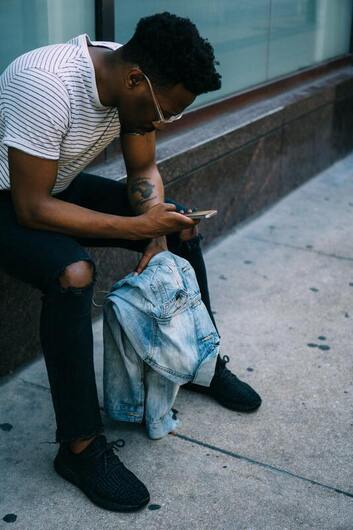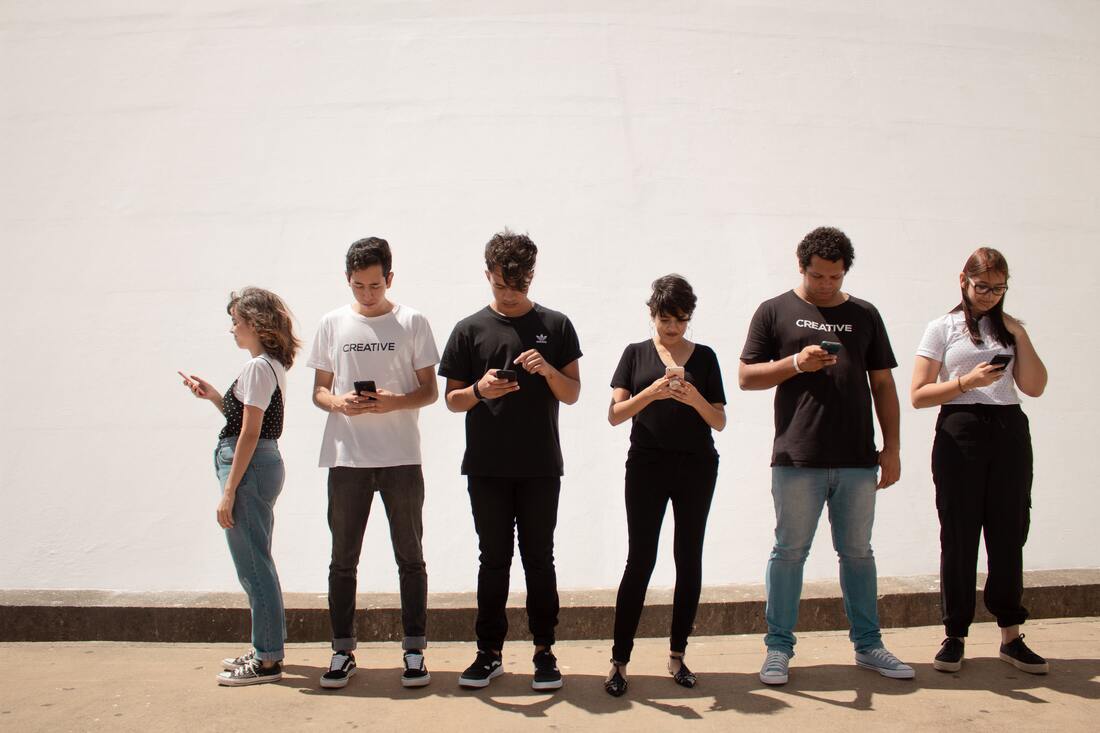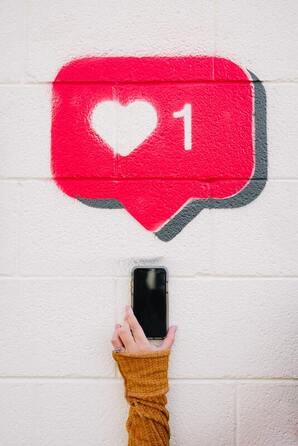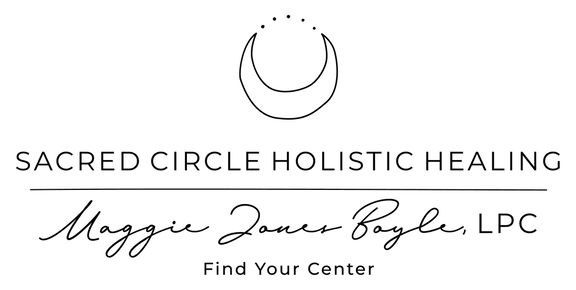
I have a like-hate relationship with social media, as I think many of us do nowadays. There are some good things about it... I like some of the groups I’m in on Facebook, and I learn a lot from some of the accounts that I follow on Instagram. It’s a decent tool for keeping in touch and up-to-date with family and friends you don’t get to see everyday–-especially now in the age of COVID and social distancing.
Have you ever picked up your phone for a specific purpose, but as soon as you open it, you mindlessly click your IG app out of habit and start scrolling. Suddenly 20 minutes have passed and you have no recollection of why you actually picked up your phone in the first place? Yikes.
Social Media and Anxiety
| Most of the clients I see struggle with some form of anxiety–-usually high functioning anxiety and/or social anxiety. Often their anxiety is fueled by comparing themselves to others, holding impossibly high standards for themselves, ruminating about past and future interactions or conversations, worrying about what people think of them, worrying about doing things “right,” etc. |  Photo by Creative Christians on Unsplash |
Social Media and the Highly Sensitive (HSPs)
In short, like most things in our capitalistic culture and society, social media wasn’t created by the Highly Sensitive and definitely wasn’t created for the Highly Sensitive.
What’s my point? You guessed it, BOUNDARIES. Boundaries are pretty much always my point.
Boundaries and Social Media Use
No more scrolling on the toilet. No more Instagram first thing in the morning. No more staring at your phone in the dark before you go to sleep. No more.
Boundaries with social media can look a lot of different ways. I will just share with you some of the things that have worked for me at different times, as a Highly Sensitive, recovering people pleaser who lived with high functioning anxiety for much of my teenage and adult life.
Social Media is Purposely Addictive
Instagram is the platform that I use primarily, and since 2018 I've observed trends in the algorithms that seem to purposely play on users insecurities while simultaneously utilizing a basic tenet of behaviorism called intermittent reinforcement.
This is only one small example of many ways these platforms are designed to get us and keep us hooked. If you’re interested in learning more, a quick search will bring up a lot. I would recommend using a search engine other than Google.
Be Compassionate Toward Yourself
| In the interest of full disclosure, these only work for me sometimes. Depending on what I have going on in my life, sometimes I’m able to exercise more self control and sometimes I’m not. That’s ok. That’s life. Having curiosity about how social media impacts us and trying to be intentional and conscious about our usage is what helps to mitigate the negative impacts, not being perfectly disciplined. Do I think it’s absolutely vile and evil that these companies are creating addictive platforms on purpose when they know that social media addiction is detrimental to people’s (particularly young people’s) mental health in the name of profit? Yes, I do. But that’s a topic for another time. |  Photo by Karsten Winegeart on Unsplash |
Alright, on to my tips.
5 Tips for Better Social Media Boundaries
I have social media time scheduled into my week on certain days, at certain times, and for a specified amount of time.
Sidenote, I use social media for work, so for those of you who are saying “I can’t do this because I have to be on these platforms for work,” you can do it, it just takes more discipline and requires self-restraint to avoid scrolling during work time. If any other kinds of resistance are coming up when you think about doing this, I encourage you to get curious about those storylines. Are they true? Are they not?
2. I set the timer on my phone. When the timer goes off, my time on social media is up.
3. I’m really choosy about who I follow.
I don’t follow pages that explicitly or implicitly play into my insecurities/traumas, drain my energy, or have a negative impact on my self esteem. It’s not worth it.
4. On Facebook, I have all of my social contacts blocked in my timeline, so all I can see are the (non-personal) pages I follow and groups I’m in.
This helps because now when I log in, I’m not bombarded by information about people’s lives that I may or may not be interested in knowing/seeing. I can still check in with folks, but on my own terms by actually searching their name. I’ve found that Facebook is not only less overwhelming this way, but also less addictive (because it’s inherently less entertaining!).
5. I don’t keep social media apps on my phone. When possible I access them solely through my laptop.
Yes, it’s a huge pain in the ass to re-download the app every time I need to use it on my phone for work. But that’s the point: make access more difficult. I have to do this because I’m not disciplined enough to keep myself from opening up IG and scrolling every time I have a few minutes. It’s been really helpful in cutting down on unscheduled scrolling time.
I hope that's helpful! Setting boundaries with social media is challenging, but just the process of reflection on our relationship with these platforms can make a tremendous difference in the ways they impact our lives. Thanks for reading!
Looking for an online therapist in Kansas?
I offer online counseling throughout Kansas. Reach out today to schedule your free 15 minute phone consultation. I'd love to hear from you!
Other Services Offered by Maggie
Astrology is a powerful tool for gaining self-awareness, finding meaning in and understanding of our difficult experiences, and for receiving validation regarding our own unique life path. All of which supports our mental health in a positive way!
Interested in getting a Natal Chart Reading? Book a free phone consultation and let’s get started!

 RSS Feed
RSS Feed
